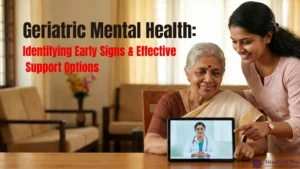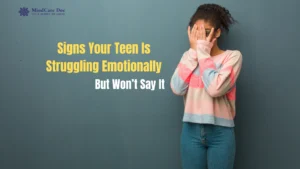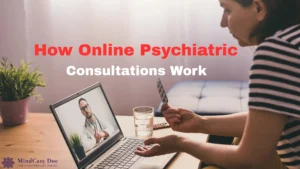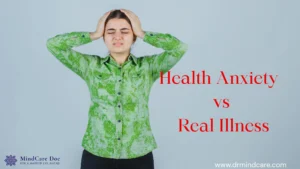Introduction
Social media connects us like never before helping us learn, share and stay in touch
across distances. But the same platforms that bring us closer can also quietly drain our
peace of mind if we don’t manage them wisely.
Too much screen time can lead to anxiety, poor sleep and low self-esteem. Over time,
constant scrolling can become emotionally exhausting and addictive.
Let’s explore how social media affects mental health, how to spot warning signs and how
to create healthy social media habits for a balanced digital life.
Why Social Media Impacts Mental Health
Social media has both positive and negative effects on our mental wellbeing:
The Positive Side
● Encourages connection and community, especially when you feel isolated.
● Provides access to education, inspiration and global awareness.
● Offers spaces for self-expression and support through online communities.
The Negative Side
● Comparison culture can lower self-esteem and increase insecurity.
● FOMO (Fear of Missing Out) triggers stress and dissatisfaction.
● Late-night scrolling disrupts sleep quality and causes fatigue.
● Exposure to unrealistic images affects body image and confidence.
When social media use begins to control your emotions or routine, it’s time to build
boundaries for better digital wellbeing.
7 Signs You Need Better Social Media Boundaries
1.Constant Checking of Notifications
If you can’t go a few minutes without checking your phone, it may be a sign of
social media addiction. This constant stimulation increases anxiety and prevents
mental rest.
2.Feeling Drained After Scrolling
You log in to “relax” but end up feeling irritated or sad. Emotional exhaustion
after scrolling is one of the most common psychological effects of social media.
3.Trouble Sleeping Due to Late-Night Scrolling
Blue light and overstimulation from screens interfere with melatonin, the sleep
hormone. If this sounds familiar, consider insomnia or anxiety counselling in
Kerala to rebuild healthy rest habits.
4.Comparing Yourself to Others Frequently
Seeing filtered, curated lives online can distort reality. This can lower self-worth
and contribute to anxiety or depression.
5.Struggling to Focus on Work or Studies
Notifications and endless feeds reduce attention span and productivity.
Mindfulness or CBT for social media addiction can help regain focus.
6.Neglecting Offline Relationships
If your digital connections start replacing real conversations or family time, your
emotional balance is at risk.
7. Increased Anxiety or Low Mood After Social Media
When scrolling leaves you feeling anxious, jealous or empty, it’s a strong signal to
pause and seek therapy for digital wellbeing.
How to Set Healthy Social Media Boundaries
Creating limits doesn’t mean cutting off – it means using social media mindfully.
1.Limit Screen Time & Use Digital Tools
Use apps like “Digital Wellbeing” or “Screen Time” to track daily use and
schedule breaks. Screen time management in Kerala programmes can guide you
toward healthier routines.
2.Curate a Positive Feed
Unfollow accounts that trigger comparison or negativity. Follow creators who
promote positivity, wellness and authenticity.
3.Create “No-Phone Zones”
Keep devices away during meals, family time or bedtime. This helps rebuild
presence and calm.
4.Turn Off Non-Essential Notifications
Reducing notifications helps you check your phone with purpose, not impulse.
5.Replace Scrolling with Healthier Habits
Swap late-night scrolling for meditation, reading or journaling. Even 10 minutes
of quiet reflection supports stress management and mental clarity.
Therapy & Counselling for Social Media Overuse
When self-control feels difficult, professional help can make recovery easier.
● CBT (Cognitive Behavioral Therapy) helps identify triggers and reframe thought
patterns linked to compulsive online use.
● Online counselling in Kerala offers a safe space to manage anxiety, guilt or
dependency caused by social media.
● Counselling for anxiety in Kerala focuses on improving coping skills, mindfulness
and confidence.
● Therapy provides structure, accountability and emotional support – beyond what
self-regulation alone can achieve.
Digital Detox & Mindfulness Approaches
1.Scheduled Detox Days
Take one day each week off social media. Use it for outdoor activities, art or
connection.
2.Mindfulness Practices
Breathing exercises, meditation and journaling help calm racing thoughts and
rebuild focus.
3.Integrating Therapy + Lifestyle Changes
Combining therapy for social media addiction in Kochi with small daily habits
ensures long-term balance.
Practical Tips You Can Try Today
● Set daily app limits – e.g. 1 hour on Instagram.
● Avoid screens 1 hour before bedtime for better sleep.
● Start a gratitude journal – focus on what’s real, not what’s online.
● Remember: Small steps matter, but lasting change comes with professional
guidance.
How MindcareDoc Can Help You Balance Digital Life
At MindcareDoc, we combine psychiatric expertise, counselling and holistic lifestyle
guidance to help you find digital balance.
Our services include:
● Social media addiction therapy in Kochi, Trivandrum and
● Online counselling for anxiety and stress
● CBT and mindfulness-based therapy for digital wellbeing
● Screen time management programs






